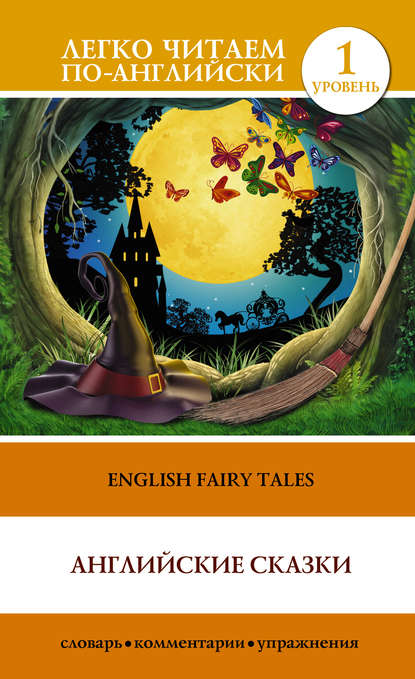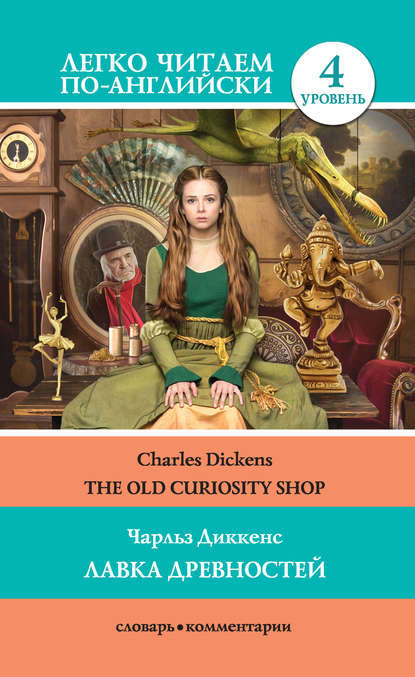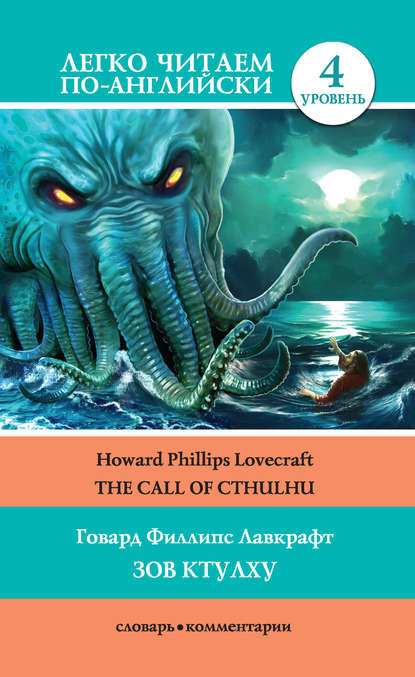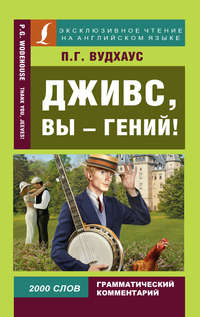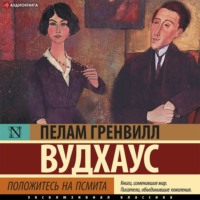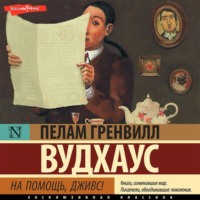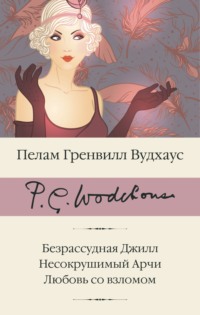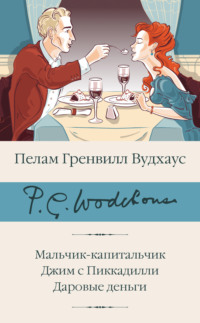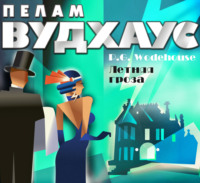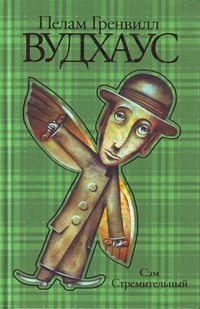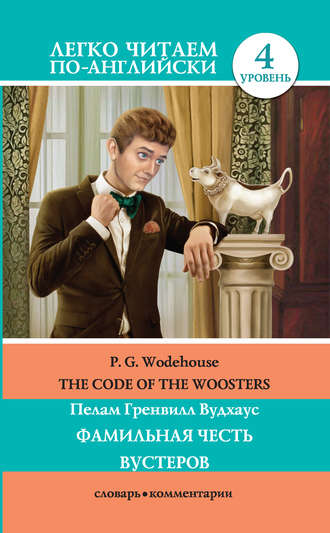
Полная версия
The Code of the Woosters / Фамильная честь Вустеров
The second:
Bertie, you old ass, I hear you are coming here. Delighted, as something very important want you do for me.
StiffyThe third:
Please come here if you wish, but, oh Bertie, is this wise? Will not it cause you needless pain seeing me? Surely merely twisting knife wound[47].
MadelineJeeves was bringing me the morning cup of tea when I read these telegrams, and I handed them to him in silence. He read them. Then he spoke.
“I think that we should start at once, sir.”
“I suppose so.”
“I will pack immediately. Would you wish me to call Mrs Travers on the telephone?”
“Why?”
“She has rung up several times this morning.”
“Oh? Then perhaps you had better give her a call.”
“I think it will not be necessary, sir. I fancy that this would be the lady now.”
A long peal had sounded from the front door. A moment later it was plain that his intuition had not deceived him. A booming voice rolled through the flat.
“Isn’t that young hound awake yet, Jeeves?… Oh, there you are.”
Aunt Dahlia appeared. The breath came jerkily, and the eyes gleamed with a goofy light.
“I’ve been awake some little time,” I corrected. “As a matter of fact, I was just about to partake of the morning meal. You will join me, I hope? Bacon and eggs may, eh?”
She snorted
“Eggs! What I want is a brandy and soda. Tell Jeeves to mix me one. And if he forgets to put in the soda, it will be all right with me. Bertie, a frightful thing has happened.”
“Let’s go to the dining saloon, my dear aunt,” I said. “We shall not be interrupted there. Jeeves will come in here to pack.”
“Are you off somewhere?”
“Totleigh Towers. I have had a most disturbing—”
“Totleigh Towers? Well, I’m dashed! That’s just where I came to tell you you had got to go immediately”
“Eh?”
“Matter of life and death.”
“What do you mean?”
“You’ll soon see, when I’ve explained.”
“Then come along to the dining room and explain at your earliest convenience.”
“Now then, my dear old auntie,” I said, when Jeeves had brought the foodstuffs and withdrawn, “tell me all.”
For an instant, there was silence, broken only by the musical sound of an aunt drinking brandy and soda. Then she drew a deep breath. “Bertie,” she said, “I wish to begin by saying a few words about Sir Watkyn Bassett. May greenfly attack his roses. May his cook be drunk on the night of the big dinner party. May all his hens die.”
“Does he keep hens?” I said. “May his cistern start leaking, and may white ants, if there are any in England, gnaw away the foundations of Totleigh Towers. And when he walks to the church with his daughter Madeline, may he get a sneezing fit and find that he has come out without a pocket handkerchief”
She paused.
“Quite,” I said. “I agree with you in too. But what has he done?”
“I will tell you. You remember that cow-creamer?”
I dug into a fried egg, quivering a little.
“Remember it? I shall never forget it. You will scarcely believe this, Aunt Dahlia, but when I got to the shop, who should be there by the most amazing coincidence but this same Bassett—”
“It wasn’t a coincidence. He had gone there to have a look at the thing, to see if it was all Tom had said it was. For—can you imagine such lunacy, Bertie?—that uncle of yours had told the man about it. Tom lunched with Sir Watkyn Bassett at the latter’s club yesterday. And the fiend Bassett had come to the shop and bought the cow-creamer. The man had promised to hold it for Tom till three o’clock, but naturally when three o’clock came and he didn’t turn up and there was another customer looking at the thing, and he let it go. So there you are. Bassett has the cow-creamer, and took it down to Totleigh last night.”
It was a sad story, of course. A magistrate who could nick a fellow for five pounds, when a mere reprimand would more than have met the case, was capable of anything, but I couldn’t see what she thought there was to be done about it. It’s better to start a new life and try to forget. That’s what I said to my aunt. She gazed at me in silence for a moment.
“Oh? So that’s how you feel, is it?”
“I do, yes.”
“You admit, I hope, that by every moral law that cow-creamer belongs to Tom?”
“Oh, certainly”.
“But would you allow this ugly man to get away with the swag? You would just sit tight and say ‘Well, well!’ and do nothing?”
I weighed this.
“Possibly not ‘Well, well!’, but I wouldn’t do anything.”
“Well, I’m going to do something. I’m going to steal the damn thing.”
I started at her, astounded. I uttered no verbal rebuke, but there was a distinct “Tut, tut!” in my gaze. Even though the provocation was, I admitted, I could not approve of these strong methods. And I was about to awaken her dormant conscience, when she added:
“Or, rather, you are!”
“Who, me?”
“That’s right. You’re going to stay at Totleigh. You will have a hundred excellent opportunities—”
“But, dash it![48]”
“—and I must have it, because otherwise I shall never be able to dig a cheque out of Tom for that Pomona Grindle serial. He simply won’t be in the mood. And I signed the old girl up yesterday at a fabulous price, half the sum agreed upon to be paid in advance a week from current date. So, my lad. I can’t understand why you are so surprised. It doesn’t seem to me much to do for a loved aunt.”
“It seems to me a dashed thing. I’m not going to—”
“Oh, yes you are, because you know what will happen, if you don’t.”
She paused significantly.
“You follow me, Watson[49]?”
I was silent. She had no need to tell me what she meant. This was not the first time she had displayed a sword. This ruthless relative has one all powerful weapon which she holds constantly over my head like the sword. The threat that if I don’t obey she will bar me from her board and wipe Anatole’s cooking from my lips. I shall not forget the time when she placed sanctions on me for a whole month—right in the middle of the pheasant season. I made one last attempt to reason with her.
“But why does Uncle Tom want his frightful cow-creamer? It’s a ghastly object. He would be far better without it.”
“He doesn’t think so. Well, there it is. Perform this simple, easy task for me, or guests at my dinner table will soon be saying: ‘Why is it that we never seem to see Bertie Wooster here anymore?’ Bless my soul, what an amazing lunch that was that Anatole gave us yesterday! ‘Superb’ is the only word. I don’t wonder you’re fond of his cooking. As you sometimes say, it melts in the mouth.”
I eyed her sternly. “Aunt Dahlia, this is blackmail!”
“Yes, isn’t it?” she said, and beetled off[50]. I resumed my seat, and ate a moody slice of cold bacon.
Jeeves entered. “The bags are packed, sir.”
“Very good, Jeeves,” I said. “Then let us be starting.”
* * *“Jeeves,” I said, breaking a thoughtful silence which had lasted for about eighty seven miles, “I am in a big trouble.”
“Sir?”
I frowned. The man was discreet, and this was no time for discretion.
“Don’t pretend you don’t know all about it, Jeeves,” I said coldly. “You were in the next room throughout my interview with Aunt Dahlia, and her remarks must have been audible in Piccadilly[51].”
He dropped the mask.
“Well, yes, sir, I must confess that I gathered the substance of the conversation.”
“Very well, then. You agree with me that the situation is dreadful?”
“Certainly a somewhat sharp crisis in your affairs would appear to have been precipitated, sir.”
“If I had my life to live again, Jeeves, I would start it as an orphan without any aunts. Don’t they put aunts in Turkey in sacks and drop them in the Bosphorus[52]?”
“Odalisques[53], sir, I understand. Not aunts.”
“Well, why not aunts? Look at the trouble they cause in the world. I tell you, Jeeves, and you may quote me as saying this—behind every poor, innocent, harmless blighter who is going down, you will find, if you look carefully enough, the aunt.”
“There is much in what you say, sir.”
“It is no use telling me that there are bad aunts and good aunts. They are all alike. Consider this Dahlia, Jeeves. I have always respected her. But what did she offer? We are familiar with Wooster, the supposed bag-snatcher. But this aunt is going to present to the world a Wooster who goes to the houses of retired magistrates and, while eating their bread and salt, steals their cow-creamers. Oh!”
“Most disturbing, sir.”
“I wonder how old Bassett will receive me, Jeeves.”
“It will be interesting to observe his reactions, sir.”
“He can’t throw me out, I suppose, Miss Bassett having invited me?”
“No sir”.
“On the other hand, he can—and I think he will—look at me over the top of his pince-nez and make terrible noises. The prospect is not an agreeable one.”
“No, sir.”
“I mean to say, even if this cow-creamer thing had not come up, conditions would be terrible.”
“Yes, sir. Might I enquire how are you going to carry out Mrs Travers’s wishes?”
“That is the problem which is torturing me, Jeeves. I can’t make up my mind. When I think of being barred from those menus of Anatole’s, I say to myself that I will fulfill the task. Old Bassett is firmly convinced that I am a combination of a swindler and a thief and steal everything I see.”
“Sir?”
“Didn’t I tell you about that? I had another encounter with him yesterday. He now looks upon me as the king of the criminal world—if not Public Enemy[54] Number One, certainly Number Two or Three.”
I informed him briefly of what had occurred. Jeeves does not often smile, but now a distinct simper had begun to wreathe his lips.
“A laughable misunderstanding, sir.”
“Laughable, Jeeves?”
“I beg your pardon, sir. I should have said ‘disturbing’.”
“Quite. But even if I want to steal cow-creamers, how am I going to find the time? You have to plan and plot and lay schemes. And I shall think about this business of Gussie’s.”
“Exactly, sir.”
“And, as if that wasn’t enough to have on my mind, there is that telegram of Stiffy’s. You remember the third telegram that came this morning. It was from Miss Stephanie Byng, Miss Bassett’s cousin, who resides at Totleigh Towers. You’ve met her. She came to lunch at the flat a week or two ago. A very small girl.”
“Oh, yes, sir. I remember Miss Byng. A charming young lady.”
“Maybe. But what does she want me to do for her? That’s the question. Probably something completely unfit for me. So I’ve got that to worry about, too. What a life!”
“Yes, sir.”
We noted a signpost where had been inscribed the words ‘Totleigh-in-the-Wold, 8 miles’. Soon I braked the car. “Journey’s end, Jeeves?”
“I can imagine, sir.”
Having turned in at the gateway and fetched up at the front door, we were informed by the butler that this was indeed the lair of Sir Watkyn Bassett.
Sir Watkyn, the butler explained, had gone for a walk.
“I fancy he is somewhere in the garden with Mr. Roderick Spode[55].”
I was shocked. After that affair at the antique shop, the name Roderick was, as you may imagine, rather deeply graven on my heart.
“Roderick Spode? Big chap with a small moustache and the sort of eye that can open an oyster at sixty paces?”
“Yes, sir. He arrived yesterday with Sir Watkyn from London. They went out shortly after lunch. Miss Madeline, I believe, is at home, but it may take some little time to locate her.”
“How about Mr. Fink-Nottle?”
“I think he has gone for a walk, sir.”
“Oh? Well, right. Then I’ll just walk a bit, too.”
I was glad of the chance of being alone for a while. I strolled off along the terrace. The news that Roderick Spode was here had shaken me greatly.
I mean, imagine how some unfortunate criminal would feel, on coming down to do a murder somewhere, if he found that not only was Sherlock Holmes[56] putting in the weekend there, but Hercule Poirot[57], as well.
The more I thought about pinching that cow-creamer, the less I liked the idea. I was trying hard to find some formula.
Old Bassett, I noted, had laid out his money to excellent advantage. I am a bit of a connoisseur of country houses, and I found this one excellent. Nice facade, spreading grounds, smoothly shaven lawns, and a general atmosphere of what is known as old-world peace. Cows were mooing in the distance, sheep and birds respectively bleating and tooting. Totleigh Towers might be a place where man was vile, but undoubtedly every prospect pleased.
And I was strolling up and down, my attention was arrested by the interior of a room on the ground floor, visible through an open French window.
It was a sort of minor drawing room, if you know what I mean. And it was filled with glass cases and statuettes. It was evident that I was looking at the Bassett collection.
I paused. Something forced me to enter the room. And the next moment, there I was with my old pal the silver cow. It was standing in a small case over by the door, and I peered in at it, breathing heavily on the glass. I dipped in, and fished it out.
At this point a voice behind me said “Hands up!” and, turning, I observed Roderick Spode in the window. He had a shotgun in his hand.
Three
I had described Roderick Spode to the butler as a man with an eye that could open an oyster at sixty paces, and it was an eye of this nature that he was directing at me now. I saw that I had been mistaken in supposing him to be seven feet in height. Eight, at least. Also the slowly working jaw muscles.
I hoped he was not going to say “Ha!” but he did. And that concluded the dialogue sequence for the moment. Then, still keeping his eyes glued on me, he shouted: “Sir Atkyn!” There was a distant sound of Eh-yes-here-I-am-what-is-it-ing. “Come here, please. I have something to show you.” Old Bassett appeared in the window, adjusting his pince-nez.
“Look!” said Spode. “Would you have thought such a thing possible?”
Old Bassett was goggling at me with a sort of stunned amazement.
“Good God! It’s the bag-snatcher!”
“Yes. Isn’t it incredible?”
“It’s unbelievable. Why, damn it, I’s persecution. Fellow follows me everywhere. Never a free moment. How did you catch him?”
“I was walking along the drive, and I saw a furtive figure slink in at the window. I hurried up, and covered him with my gun. Just in time. He had already begun to loot the place.”
“Well, I’m most obliged to you, Roderick. But what I can’t understand is the chap’s pertinacity. But no. Well, he will be sorry he did.”
“I suppose this is too serious a case for you to deal with summarily?”
“I can issue a warrant for his arrest. Bring him along to the library, and I’ll do it now. The case will have to go to the Assizes.”
“What will he get, how do you think?”
“Not easy to say. But certainly not less than—”
“Hoy!” I said. I had intended to speak in a quiet, reasonable voice—to explain that I was on these premises as an invited guest, but for some reason the word came out like a thunder. Spode said: “Don’t shout like that! ”
“Nearly broke my ear-drum,” grumbled old Bassett.
“But listen!” I yelled. “Will you listen!”
A certain amount of confused argument then ensued, and in the middle of it all, the door opened and somebody said “Goodness gracious!”
I looked round. Those parted lips… those saucer-like eyes… that slender figure… Madeline Bassett came in. “Goodness gracious!” she repeated. She was definitely the sort of girl who puts her hands over a husband’s eyes, as he is crawling in to breakfast with a morning head, and says: “Guess who!”
I once stayed at the residence of a newly married pal of mine, and his bride had had carved in large letters over the fireplace in the drawing room, where it was impossible to miss it, the legend: “Two Lovers Built This Nest.” Whether Madeline Bassett, on entering the marital state, would do the same, I could not say, but it seemed most probable. She was looking at us with a sort of pretty, wide-eyed wonder. “What is all the noise about?” she said. “Why, Bertie! When did you get here?”
“Oh, hallo. I’ve just arrived.”
“Did you have a nice journey?”
“Oh, rather, thanks.”
“You must be quite exhausted.”
“Oh, no, thanks, rather not.”
“Well, tea will be ready soon. I see you’ve met Daddy.”
“And Mr. Spode.”
“And Mr. Spode. I don’t know where Augustus is, but he’s sure to be in to tea.”
Old Bassett had been listening to these courtesies with a dazed expression on the face. To him, Bertram was a creature of the underworld who stole bags and umbrellas and, what made it worse, didn’t even steal them well.
“You don’t mean you know this man?” he said. Madeline Bassett laughed the tinkling, silvery laugh.
“Why, Daddy, you’re too absurd. Of course I know him. Bertie Wooster is an old, old, a very dear old friend of mine. I told you he was coming here today.”
“This isn’t your friend Mr. Wooster?”
“Of course.”
“But he snatches bags.”
“Umbrellas,” prompted Spode.
“And umbrellas,” assented old Bassett. “And makes daylight raids on antique shops.”
“Daddy!” said Madeline
“He does, I tell you. I’ve caught him at it,” Old Bassett said
“I’ve caught him at it,” said Spode.
“We’ve both caught him at it,” said old Bassett. “All over London. Wherever you go in London, there you will find this fellow stealing bags and umbrellas. And now in the heart of Gloucestershire[58].”
“Nonsense!” said Madeline. I saw that it was time to put an end to all this rot.
“Of course it’s nonsense,” I thundered. “The whole thing is one of those laughable misunderstandings.”
I must say I was expecting that my explanation would have gone better than it did. But old Bassett, like so many of these police court magistrates, was a difficult man to convince. He kept interrupting and asking questions, and looking at me as he asked them. You know what I mean—questions beginning with “Just one moment—” and “You say—” and “Then you are asking us to believe—” Offensive, very.
However, I managed to get him straight on the umbrella, and he conceded that he might have judged me unjustly about that.
“But how about the bags?”
“There weren’t any bags. ”
“I certainly sentenced you for something at Bosher Street[59]. I remember it vividly”
“I pinched a policeman’s helmet.”
“That’s just as bad as snatching bags.”
Roderick Spode intervened unexpectedly. He had been standing by, thoughtfully listening to my statements.
“No,” he said, “I don’t think you can go so far as that. When I was at Oxford, I once stole a policeman’s helmet myself.”
I was astounded. It just showed, as I often say, that there is good in the worst of us. But old Bassett said,
“Well, how about that affair at the antique shop? Hey? Didn’t we catch him in the act of running off with my cow-creamer? What has he got to say to that?”
Spode nodded.
“The bloke at the shop had given it to me to look at,” I said shortly. “He advised me to take it outside, where the light was better.”
“You were rushing out.”
“I trod on the cat.”
“What cat?”
“It lives there, I suppose.”
“Hm! I saw no cat. Did you see a cat, Roderick?”
“No, no cat.”
“Ha! But what were you doing with that cow-creamer? You say you were looking at it. You are asking us to believe that you were merely looking at it. Why? What was your motive? What possible interest could it have for a man like you?”
“Exactly,” said Spode. “The very question I was going to ask myself.”
“You say the proprietor of the shop handed it to you. But I say that you snatched it up and were running away. And now Mr. Spode catches you here, with the thing in your hands. How do you explain that? What’s your answer to that? Hey?”
“Why, Daddy!” said Madeline. “Naturally your silver would be the first thing Bertie would want to look at. Of course, he is interested in it. Bertie is Mr. Travers’s nephew.”
“What!”
“Didn’t you know that? Your uncle has a wonderful collection, hasn’t he, Bertie? I suppose he has often spoken to you of Daddy’s.”
There was a pause. Old Bassett was breathing heavily. I didn’t like the look of him at all. He glanced from me to the cow-creamer, and from the cow-creamer to me, then back from me to the cow-creamer again.
“Oh!” he said. Just that. Nothing more. But it was enough.
“I say,” I said, “could I send a telegram?”
“You can telephone it from the library,” said Madeline. “I’ll take you there.”
She conducted me to the instrument and left me, saying that she would be waiting in the hall when I had finished. I established connection with the post office, and after a brief conversation with what appeared to be the village idiot, telephoned as follows:
Mrs Travers, 47, Charles Street[60], Berkeley Square, London.
I paused for a moment, then proceeded thus:
Deeply regret quite impossible carry out assignment you know what. Atmosphere one of keenest suspicion and any sort of action instantly fatal[61]. You ought to have seen old Bassett’s eye just now on learning of blood relationship of myself and Uncle Tom. Sorry and all that, but nothing doing.
Love. BertieI then went down to the hall to join Madeline Bassett. She was standing by the barometer, which would have been pointing to “Stormy” instead of “Set Fair”. She turned and gazed at me with a tender goggle which sent a thrill of dread creeping down the spine.
“Oh, Bertie,” she said, in a low voice like beer trickling out of a jug, “you ought not to be here!”
My recent interview with old Bassett and Roderick Spode had rather set me thinking along those lines myself. But I hadn’t time to explain that this was no idle social visit, and that if Gussie hadn’t been sending out SOSs I wouldn’t have dreamed of coming here. She went on, looking at me as if I were a rabbit which she was expecting shortly to turn into a gnome.
“Why did you come? Oh, I know what you are going to say. You felt that you had to see me again, just once. You could not resist the urge to take away with you one last memory, which you could cherish down the lonely years. Oh, Bertie, you remind me of Rudel[62].”
The name was new to me. “Rudel?”
“The Seigneur Geoffrey Rudel, Prince of Blay-en-Saintonge[63].”
I shook my head. “Never met him, I’m afraid. Pal of yours?”
“He lived in the Middle Ages. He was a great poet. And he fell in love with the wife of the Lord of Tripoli[64].”
I stirred uneasily.
“For years he loved her, and at last he could resist no longer. He took ship to Tripoli, and his servants carried him ashore. ”
“Not feeling so good?” I said. “Rough crossing?[65]”
“He was dying. Of love.”
“Oh, ah.”
“They bore him into the Lady Melisande’s[66] presence on a litter, and he had just strength enough to reach out and touch her hand. Then he died.”
She paused, and heaved a sigh. A silence ensued.
“Terrific,” I said, feeling I had to say something. She sighed again.
“You see now why I said you reminded me of Rudel. Like him, you came to take one last glimpse of the woman you loved. It was dear of you, Bertie, and I shall never forget it. It will always remain with me as a fragrant memory, like a flower pressed between the leaves of an old album. But was it wise? Should you not have been strong? Would it not have been better to have ended it all cleanly, that day when we said goodbye at Brinkley Court, and not to have reopened the wound? We had met, and you have loved me, and I had had to tell you that my heart was another’s. That should have been our farewell.”
“Absolutely,” I said. I mean to say, all that was perfectly clear, as far as it went. If her heart really was another’s, fine. Nobody more pleased than Bertram. “But I had a communication from Gussie, more or less indicating that you and he were…”
She looked at me like someone who has just solved the crossword puzzle.




